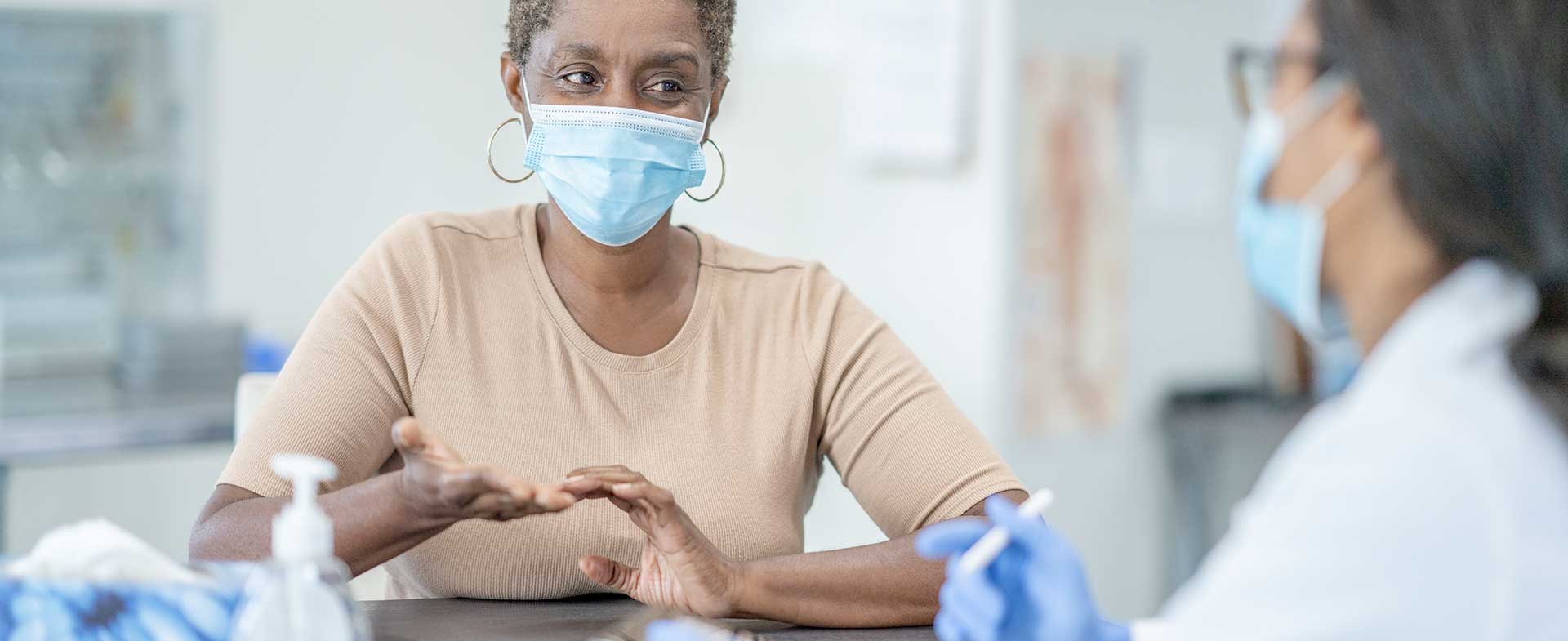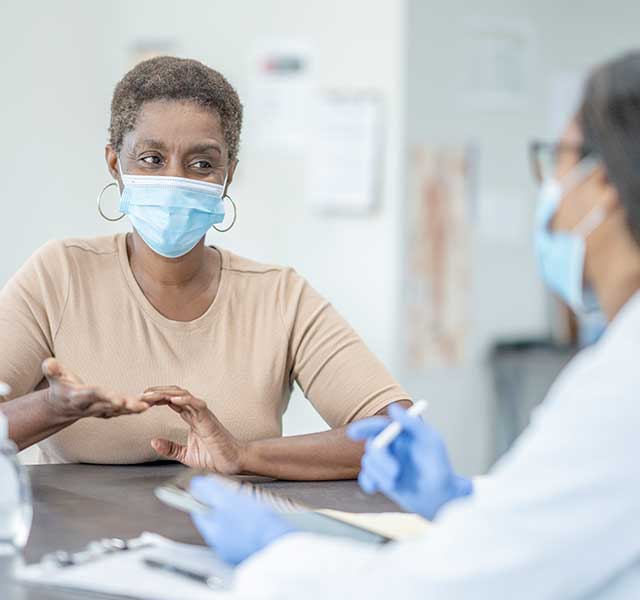With so much encouraging news about vaccine trials, we’re also hearing more about the role of diversity when it comes to testing investigational vaccines. According to Paul Kilgore, M.D., co-principal investigator for the Johnson & Johnson COVID-19 vaccine trial at Henry Ford Health, vaccines don’t necessarily work the same for all people.
“When people have different genetic and biologic makeup, their bodies can produce antibodies differently. This means to ensure a vaccine will protect people of all ethnic groups, we need to make sure everyone is fully represented in clinical trials,” he explains.
Dr. Kilgore points out that when people who look like you have reported good performance from a vaccine, you’ll also feel more confident taking the vaccine when it becomes available. “It’s reassuring to know that it works and it has been safe for people who look like you, who are your age, or have the same health condition as you,” he says.
Developing Vaccines That Offer Effective Protection
Since March, COVID-19 data has revealed disproportionately higher rates of infection, hospitalization, and death in people of color.
“If we don’t know how well a vaccine works for people of color, we won’t know how well they will be protected from COVID-19 when the vaccine is approved and becomes available,” says Dr. Kilgore. “That’s why it is so important for people of color to take part in vaccine clinical trials for COVID-19.”
Similarly, we know that older adults and people with underlying health conditions like obesity, high blood pressure and heart conditions experience more severe illness, higher hospitalization rates and higher rates of death from COVID-19.
“Just as with people of color, we need to test the vaccine among people in these groups to be sure it will also help their bodies produce antibodies,” confirms Dr. Kilgore. “A key objective in this clinical trial is representation from all people."
Kellie McFarlin, M.D., a Henry Ford Health general surgeon who is African American, understands the importance of diversity in vaccine trials – and volunteered for the Moderna COVID-19 vaccine trial herself.
“I joined the Moderna trial for two main reasons. First, as a mom of twin girls, I wanted to do as much as I could to protect my family. Second, I wanted to be involved for my community," she says. "To have diversity in the trial and to know the results could be reflective and used for the community I serve and live in was really important to me."
Safety Is Always A Priority
Monitoring patient safety during clinical trials is a critical component throughout all stages of vaccine development. Every clinical trial has to follow strict regulations and established federal standards in order to protect the safety and well-being of the participants.
“When you’re conducting a clinical trial, there are many phases to complete before the vaccine can be used with people,” says Dr. McFarlin. “These phases include lab studies, studies of the vaccine in cells, and animal studies. By the time a vaccine reaches a Phase 3 clinical trial, it has already passed through Phases 0, 1 and 2, which are focused on safety.”
Participants in Phase 3 trials are followed closely to be sure if any safety issues or questions arise, they are quickly identified and answered. Every member of the research team is knowledgeable about safety procedures and protocol.
“When a vaccine reaches a Phase 3 trial, the focus is on how well it works. The trial – because it compares the drug with a placebo – will tell us how effective it is compared with no vaccine,” says Dr. McFarlin. “And we need lots of different people, to be sure it is effective in all people.”
Considering participating in a trial but not sure if it's for you? Drs. Kilgore and McFarlin encourage people to learn more about trials available and even go through some of the initial screening steps. Because vaccine trials are completely voluntary, participants can stop at any time.
“Go to the first appointment, meet with the trial team, and ask questions,” says Dr. McFarlin. “If it’s not for you, it’s no big deal, and there is no pressure to continue.”
Henry Ford is currently enrolling diverse participants over age 40 in the Johnson & Johnson COVID-19 vaccine trial. To learn more and enroll, visit henryford.com/jandjvaccine and complete the pre-screening form.
Dr. Paul Kilgore is a researcher with Henry Ford Health and the co-principal investigator of the Johnson & Johnson COVID-19 vaccine trial.
Dr. Kellie McFarlin is a general surgeon who sees patients at Henry Ford Hospital and Henry Ford Medical Center - Lakeside.



